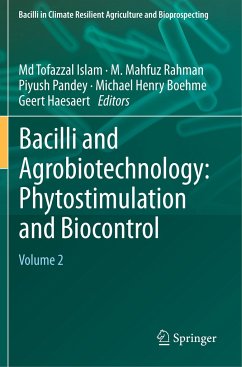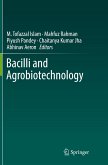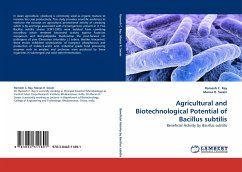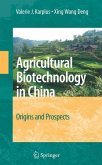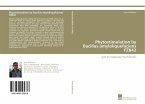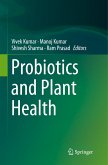The Gram-positive and spore-forming Bacilli are the most dominant group of bacteria that exist in various ecological niches on the earth. They represent one of the most important unmapped pools of biodiversity with immense potential of applications in agriculture, environment, and industry. As these bacteria are highly tolerant to stressful environment and enhance plant tolerance to harsh environment such as salinity, drought, and heavy metal toxicity, plant-associated Bacilli have high potential for promoting sustainable crop production. Many species of Bacilli are being commercially used as phytostimulator and biofertilizer. Some of them are applied as biopesticide for protecting crop plants from phytopathogens and insect pests. The Bacillus-based products are becoming popular in ecologically sound and climate resilient agricultural production system. In fact, Bacillus and allied species based formulations are already dominating the biopesticides market, although, to compete with other formulations and chemical alternatives, the biology of Bacillus had to be understood from perspective of such applications. Our understanding of the biology and molecular-basis of the beneficial effects of plant-associated Bacilli has greatly been progressed in recent years through genomics, metagenomics, post-genomics and metabolomics studies. The volume two of the series Bacilli and Agrobiotechnology comprehensively reviews and updates current knowledge of Bacilli as phytostimulant and biological control of plant pests. Better understanding the biology, ecology and mechanism of action of the beneficial strains of Bacilli will play a role in the development of products to support green biotechnology in agriculture and industries.
Bitte wählen Sie Ihr Anliegen aus.
Rechnungen
Retourenschein anfordern
Bestellstatus
Storno

